


ELECTRICAL APPRENTICESHIP
Looking for variety and an opportunity to constantly learn?
Becoming an electrician could be the career for you. Being an electrician is a crucial profession because so many aspects of our daily lives rely on electricity. An electrician is responsible for installing, maintaining, and repairing electrical systems in both residential and commercial settings. You will find yourself working in homes, commercial or industrial buildings, and even machines and large pieces of equipment.
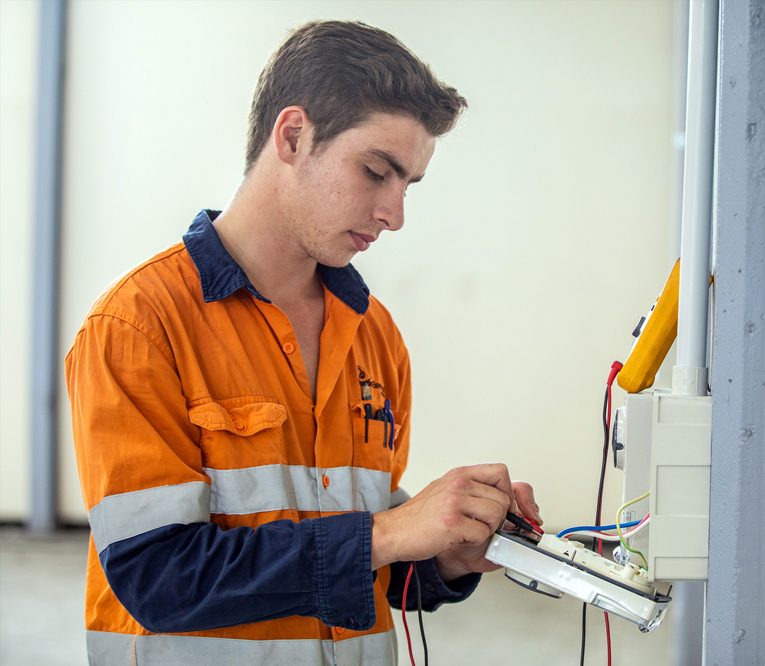
Career Opportunities
What can I do when I'm qualified?
Working as an electrician delivers lots of opportunities to work in a range of areas:
Residential
Your tasks can range from installing, maintaining and repairing electrical and power systems in houses and apartments through to automating houses and integrating different systems.
Commercial
You'll usually be working in office buildings, retail stores, hotels, warehouses, hospitals and airports undertaking installation, maintenance and reparation electrical work.
Industrial
You'll be based on industrial sites including manufacturing plants, factories, mines or water treatment plants installing, maintaining and repairing motors, equipment and power systems.
Questions about Electrical Apprenticeships
We know there can be a lot questions about apprenticeships. Have a look at our FAQs to find your answer. If we haven’t answered your question here, please get in contact so we can help you.
- Tremendous benefits including job security and career growth potential
- Growing industry and diversification due to advances in technology
- Skilled electricians are in high demand
- Every day can bring something new and fresh
- Earn while you learn
Electrical apprenticeships are 3-4 years (6,000-8,000 hours of practical work experience).
You will work on the job with your host business during the week who will teach you the practical side. You will also do a weekly night class with one block course per year, where you learn the theory around your trade and carry out bookwork and assessments.
Your ATT area manager will support you throughout your whole apprenticeship, mentoring you and providing practical advice and help. to successfully get you through to completion.
Electricians need to be:
- Great communicators - listening to your customers, understanding the problem and responding in an easy-to-understand and relaxed way are crucial
- Good problem solvers - you'll need to evaluate a situation, assess the options quickly and determine the proper course of action
- Have solid maths skills
- Accurate and methodical, with good attention to detail
- Have good eye sight - you will need to be able to accurately tell the difference between different colours of wiring
- Practical, logical and well-organised
- Safety-conscious
- Able to work well alone or in a team
Electricians with a year's experience usually earn an average of $34 an hour.
Experienced electricians with mor that 8 years' experience can earn an average of $43 an hour.
You usually work business hours sometimes you have to work weekends, public holidays or be on call.
Additional hours vary based on the sector and region where you work and the requirements of individual projects.
You may work at heights and in enclosed, noisy, dirty, dusty, or hazardous conditions.
You usually travel locally to job sites.
Your ATT area manager will arrange all your off-job training courses and make sure that you have completed all the pre-course requirements. They'll remind you when courses are coming up and chase you up to make sure you're ready!
Our ATT training manager keeps on top of any changes in your training requirements and lets you know about them.
Before you start, you will have had an interview with your host business. You will also have met with your ATT area manager, who will be your day-to-day contact.
Your area manager will have arranged all your paperwork and will have arranged for you to complete a basic site-safe and first aid course. They will also have arranged a start-up toolkit (free) and relevant basic PPE (boots, goggles, gloves etc).
When you arrive at your host trade business, they will meet with you, assign you a supervisor and your practical training will begin.
Your ATT area manager will check in with you after your first few days to make sure you have everything you need and answer any questions you may have. You then have regular catch-ups with your area manager to make sure you're on track, but you can also contact them at any point you do have questions or concerns.

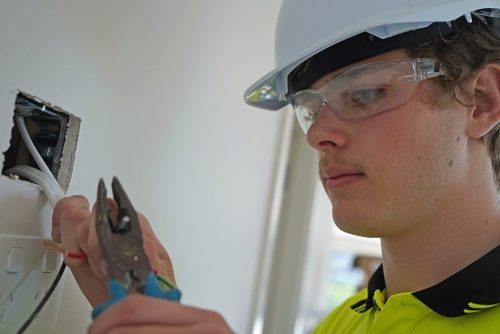
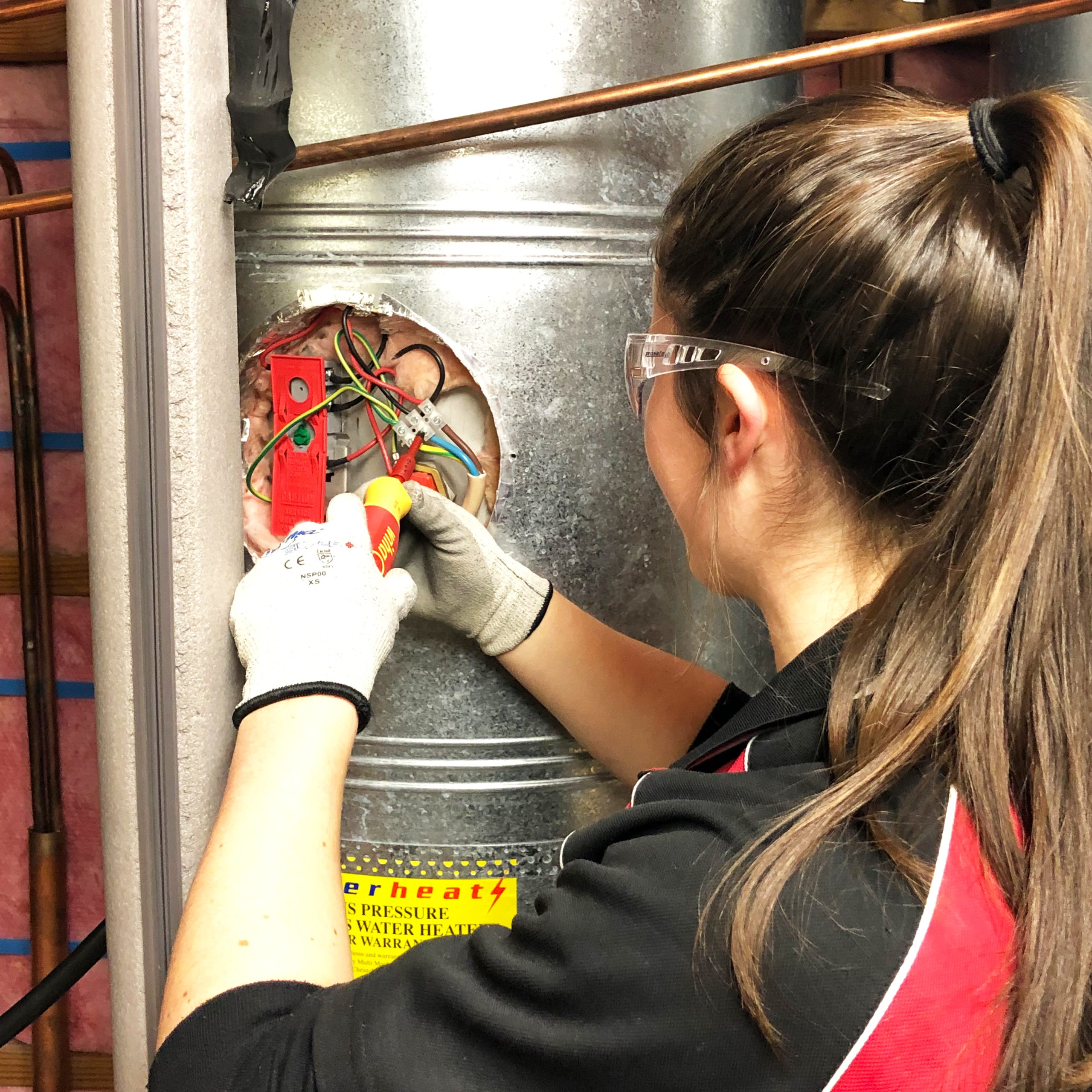
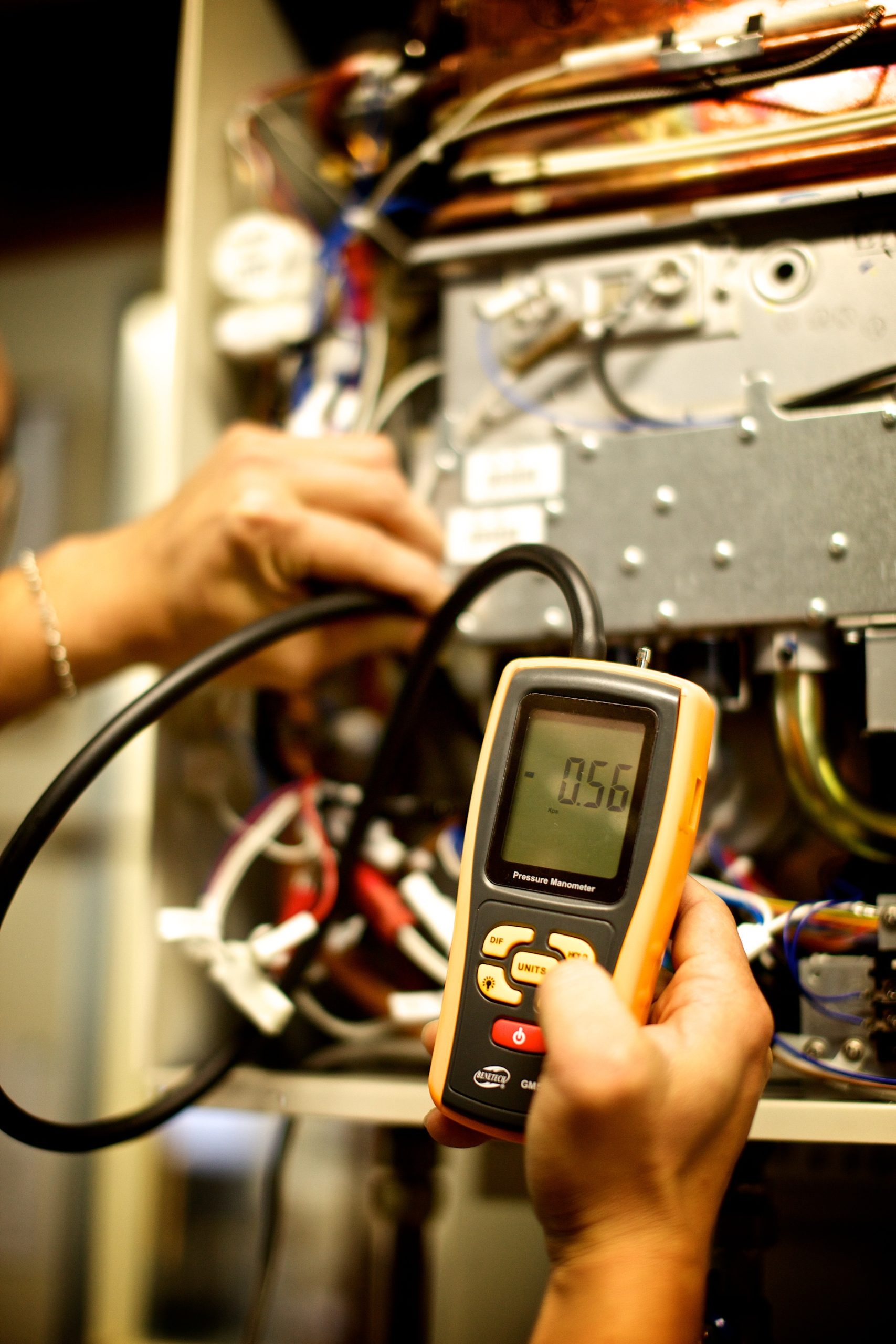
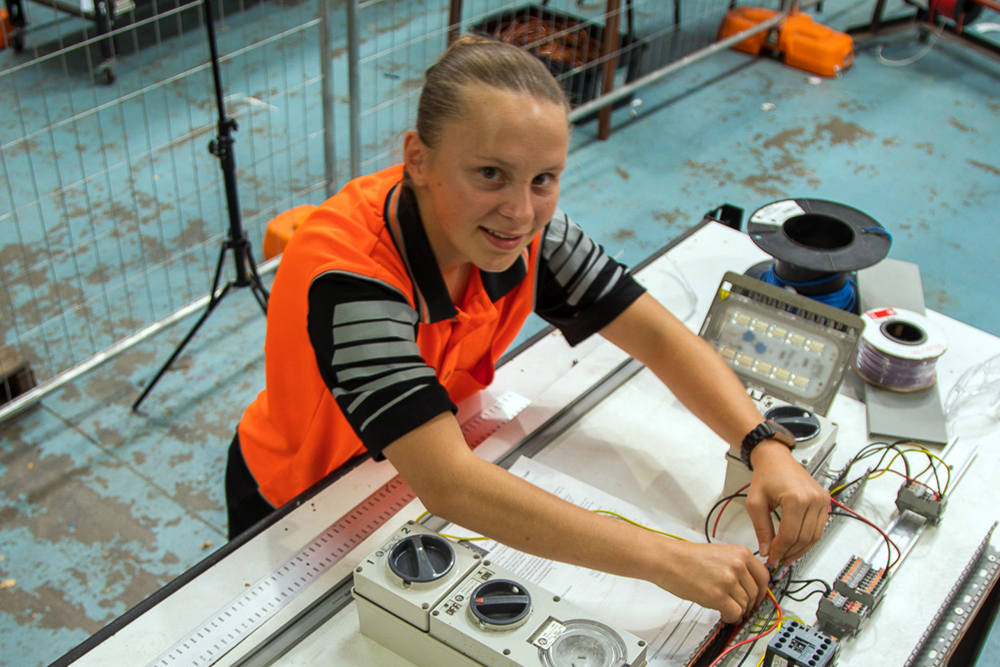
"I chose electrical because it draws in the physical aspect and the science and maths and it brings them both together. I get to be practical every day, I'm not stuck behind a desk. You learn so much about your trade, about the world, and I've learnt so much about myself."
Alice - ATT Electrical Apprentice


